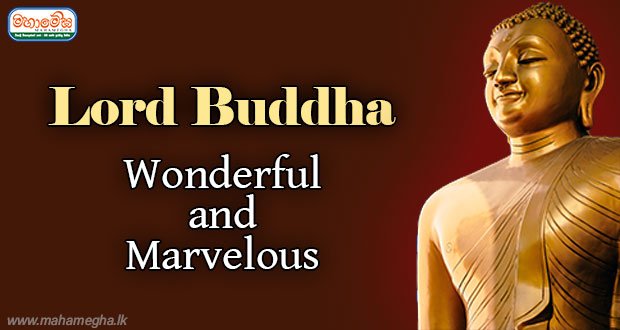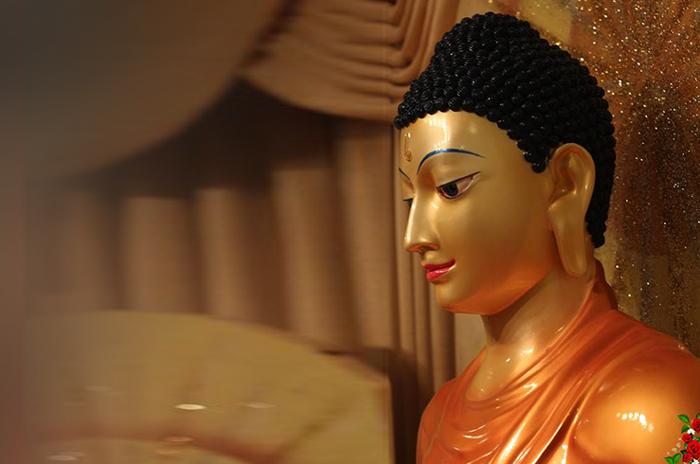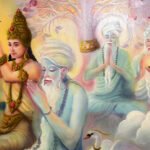The teachings of the Buddha focus mainly on purifying one’s mind. It is an impure mind that creates a world of pain and suffering to oneself. Not knowing this, different religions teach different methods to purify themselves. Some seek cleanliness through food, some through bathing and some through confession while others by rejecting basic needs. They all try to cleanse themselves by using external material or by rejecting external material when the roots of the whole problem of corruption lie within oneself. They do not know what uncleanliness is and how it occurs. Therefore they do not know what cleanliness is and the path to practice to achieve cleanliness.
The Buddha said a person is unclean when his mind is unclean. How does a mind become unclean? What are the defilements of the mind?
In Vattupama Sutta of Majjima Nikaya, the Buddha explains the defilements of the mind thus. Abhijjhàvisamalobho (unrighteous greed for what belongs to others), Byàpàdo (ill will), Kodho (anger), Upanàho (deep hatred), Makkho (denigration of other’s goodness), Paëàso (retaliation), Issà (envy), Macchariyaü (selfish greed), Màyà (hypocrisy), Sàñteyyaü (deceit), Thambho (stubbornness), Sàrambho(haughtiness), Màno (ego), Atimàno (arrogance), Mado (vanity about youth, life and health), Pamàdo (heedlessness).
These are the defilements of the mind. Any deed done, any word spoken and any thought that occurs with a mind corrupted with any of the above, is harmful for you as well as for others. Every hurtful action, gesture, word or thought that is generated, is generated in an unclean mind. A small gesture carried out with an impure mind can lead to great evil ends.
However these corruptions in one’s mind can be uprooted. They can be totally annihilated. Once the mind is completely free from these defilements the mind becomes as clean and pure as melted gold ready to be turned into a jewel. The mind becomes active and ready to understand the truth taught by the Supreme Buddha. The great teachings of the Buddha, the Noble Dhamma, can be realized by a mind that is free of defilements. Upon realizing the Noble Dhamma one becomes purest of the pure; an Arahath.
What methods can be used cleanse one’s mind? Many techniques are taught by the Buddha. To get rid of Abhijjhàvisamalobho one must practice Anicca – contemplating the nature of impermanence. To be free of Byàpàdo and Kodho one must practice Metta – unconditional love. To avoid Upanàho one must envision the bad consequences of hatred. To abolish Makkho one must think about the good qualities in others. By practicing patience one can end Paëàso. Learning to be happy for other’s achievements is the way to rid Issà. To get rid of Macchariyaü one must practice giving. To abolish Màyà and Sàñteyyaü one must practice honestly. Thambho and Sàrambho can be eliminated by being obedient. Being modest is the way to win over Màno. Realizing the selflessness is the way to eliminate Atimàno. To get rid of Mado one must see the nature of impermanence. And to end Pamàdo one must practice Marana Sati – contemplating on death- and develop fear and dislike to continue in samsara.
Thus, using the Noble Dhamma defilements of the mind must be abandoned. These methods must be practiced always without waiting for the mind to be impure to practice. Upon abandoning the defilements unwavering faith in the Buddha, Dhamma and Sangha must be developed using Buddhanussati, Dhammanussati and Sanghanussati meditation. Whenever one contemplates on the great qualities of the Buddha, Dhamma and Sangha to develop confidence, there is no space for defilements in that mind.
Furthermore, one can practice the Four Brahma Vihāras (Metta; loving-kindness, Karunā: compassion, Mudithā: happiness towards others fortune, and Upekkhā: equanimity) and experience the happiness of a purified mind which can be developed to realize the noble Dhamma.
Prajapathi Wijesinghe












Recent Comments